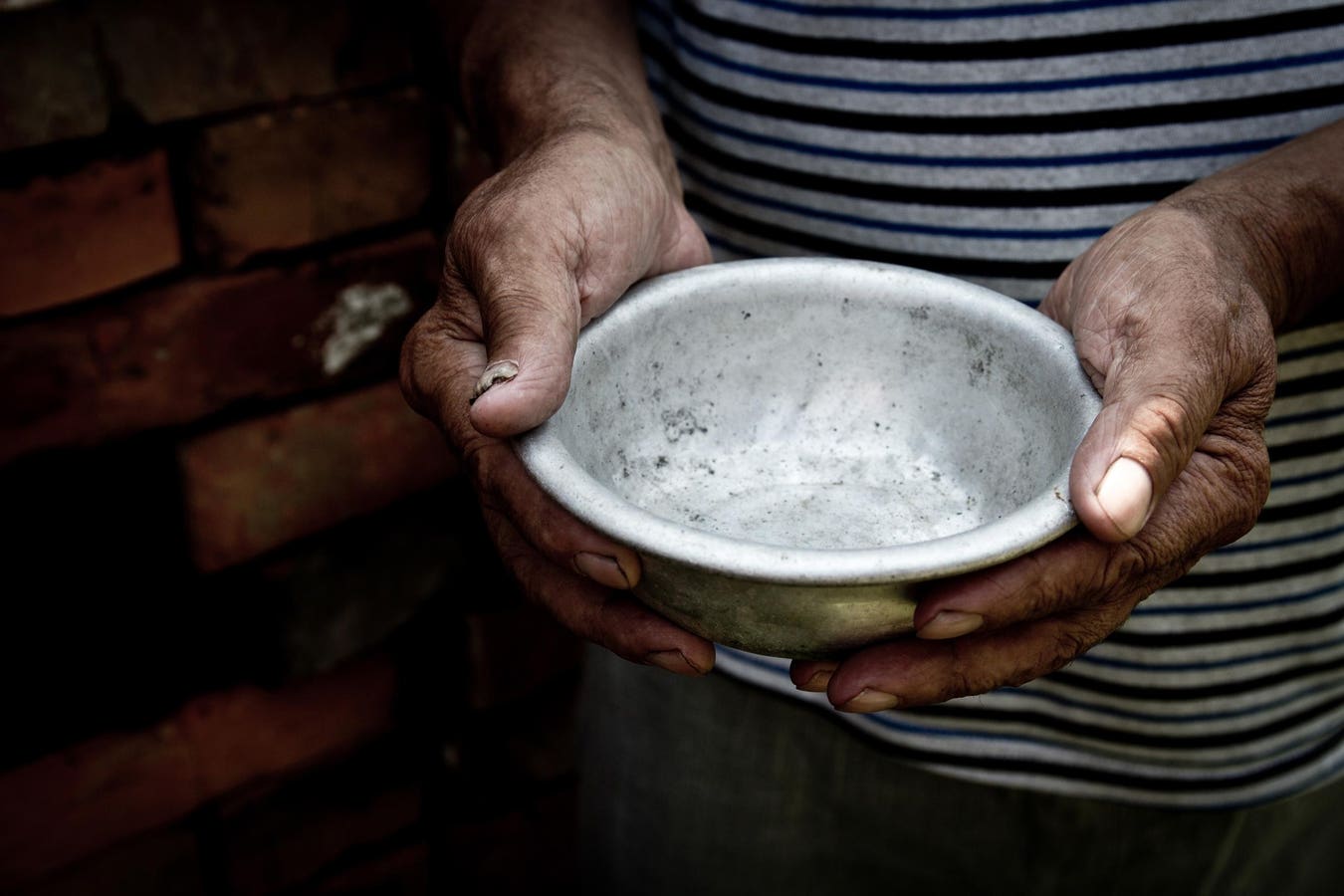Thousands of disabled people in the UK are at risk of going hungry this Christmas. [+] Food Foundation survey
Getty
The upcoming Christmas celebrations will herald a season of abundance for many, but thousands of disabled people in the UK will suffer from food insecurity and deprivation this holiday season.
This is according to a study published last week by the UK-based non-profit Food Foundation, which found that four in 10 households with a member with a severe disability experience food insecurity, in stark contrast to one in 10 households without a disabled member. The data was collected from a survey conducted in June 2023, and the situation could become even tougher now, given the rising cost of fuel needed to heat homes during the cold winter months.
Indeed, the Nuffield Foundation-funded research report notes that both the UK’s cost of living crisis and the COVID-19 pandemic that preceded it have placed a disproportionate burden on disabled people, and are a significant exacerbating factor in the plight many disabled Britons currently face.
Related to this, there are some important long-term trends, perhaps the most striking of which is the disability employment gap across the country: disabled people have a workforce employment rate of 52.6%, compared to 82.5% of able-bodied people. According to Lancaster University’s Work Foundation, 27% of disabled workers are in highly precarious work, compared to 19% of able-bodied people. Finally, research carried out by the Resolution Foundation earlier this year showed that disabled people have an average take-home pay that is 30% lower.
Against this adverse backdrop, we need to understand the extra costs that arise from the disability itself. These can come from everything from the need to buy assistive technology and mobility devices, to covering the extra fuel costs of keeping the home warm to prevent complications, to spending on electrical equipment such as ventilators and dialysis machines. According to UK disability charity Scope, some households with a disabled adult or child face additional associated costs of up to £1,000 per month. With regards to nutrition in particular, this can mean that preparing healthy meals is physically difficult, leading to an over-reliance on microwavable and processed foods.
In terms of recommendations, the Food Foundation advocates for a more generous and fair welfare system that appropriately reflects the increasing costs associated with disability and the particular importance of access to healthy eating and quality food for the disabled community as part of a wellbeing strategy.
“It is unacceptable that rates of food insecurity among people with disabilities are so high and that they are suffering disproportionately during COVID-19 and the rising cost of living,” Shauna Goudie, policy and advocacy manager at the Food Foundation, said in a media statement. “There is no excuse for not giving people with disabilities the support they need. Policymakers need to act now to reduce these inequities and protect people with disabilities from undue hardship.”
It’s a view shared by Labour MP and former shadow chancellor John McDonnell.
“It is shameful that rates of food insecurity among disabled people are skyrocketing in modern-day Britain. Disabled people in our society have been disproportionately affected by COVID-19 and continue to suffer even more than most people due to the rising cost of living,” Mr McDonnell said.
“Now all political parties need to come together and forge a consensus to end the poverty and humiliation that so many disabled people have to endure. There is no excuse for the status quo.”
It may be too late to salvage Christmas 2023 for many British families living with a disability, but whether we experience a more positive outcome next year may be, at least in part, a matter of political will.
But so far, the signs are not bright. The new year will undoubtedly be dominated by the chaos of a likely hard-fought general election campaign. Meanwhile, Chancellor Rishi Sunak’s final disability policy to close the year has been seen as something of a blow to the community. Mims Davies replaces Tom Pursglove as Minister for Disability. The reshuffle was fairly mundane until it became clear that Davies’ new role was a downgrade. She will not be dedicated to her new post, but will also continue in her current role as Secretary of State for Work and Pensions for Youth and Social Mobility. Furthermore, Davies is a junior minister, in contrast to her predecessor, who served as a Minister of State.
Indeed, since the pandemic and even before, there has been a widespread feeling of marginalization and deprioritization within the disability community. Sadly, this predictably happens at a household level, when faced with the stark choice between keeping the home warm or putting food on the table, with the end result being unavoidable and looming harshly in any season.

